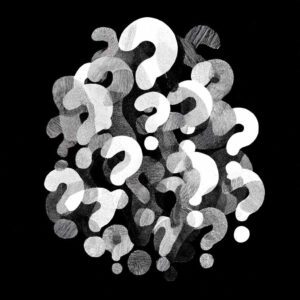ChatGPT, developed by OpenAI, is a language model based on the GPT-4 architecture. It’s a powerful tool that can generate coherent and contextually relevant sentences in response to a given prompt. Since its introduction, it has been utilized in various applications, ranging from drafting emails to writing essays, and it can be an exceptional asset for writers.
This article aims to guide writers on how to best use ChatGPT by leveraging prompts for common writing tasks.
Understanding ChatGPT
Before we dive into the specific ways you can use ChatGPT to enhance your writing process, it’s important to understand what it is and how it works.
ChatGPT is trained through a two-step process: pre-training and fine-tuning. During pre-training, it learns to predict the next word in a sentence by digesting a large corpus of internet text. During fine-tuning, it’s trained on a narrower dataset with human supervision.
Despite its vast knowledge, as of its last training cut-off in September 2021, ChatGPT doesn’t have access to private data, and it can’t make predictions about the future or access real-time information.
How to Use Prompts Effectively
Prompts are the input you provide to ChatGPT, and they play a vital role in the output you receive. The model doesn’t understand the intention behind your input; instead, it responds based on patterns and structures it has learned. Therefore, crafting your prompts carefully can help you get the most out of ChatGPT.
Here are some tips to prompt effectively:
- Be Specific: The more specific your prompt, the more specific the response will likely be. For instance, instead of asking “Tell me about dogs,” you might ask, “What are the main characteristics of Golden Retrievers?”
- Provide Context: If your question involves a specific context, include it in the prompt. For example, “As a character in a post-apocalyptic novel, how would I find food?”
- Instruct the Format: If you require a specific output format, instruct it in your prompt. For example, “Write a sonnet about the sunrise,” or “List the main events of World War II in chronological order.”
Using ChatGPT for Common Writing Tasks
ChatGPT can assist in several common writing tasks:
- Idea Generation: Struggling with writer’s block? ChatGPT can help you brainstorm ideas for your next piece. You can use prompts like, “Suggest potential plot twists for a sci-fi novel about artificial intelligence,” or “Generate topic ideas for a blog post about sustainable living.”
- Content Drafting: ChatGPT can help you draft content. For instance, if you’re writing an article about climate change, you might prompt, “Write an introduction to an article about the effects of climate change on polar bears.”
- Editing and Polishing: Once you’ve drafted your content, ChatGPT can help with editing and polishing. You could input a sentence or paragraph and ask, “How can I improve this sentence for clarity and impact?”
- Creating Dialogue: ChatGPT can help you create realistic dialogue for your characters. You could set a scenario and ask, “How would Character A respond to Character B’s accusation?”
- World-Building: For fiction writers, ChatGPT can assist with world-building. You might prompt, “Describe a bustling market scene in a steampunk world.”
Conclusion
ChatGPT is a powerful tool that can augment a writer’s creativity and productivity. By understanding its functionality and learning to prompt effectively, you can use ChatGPT to aid in









